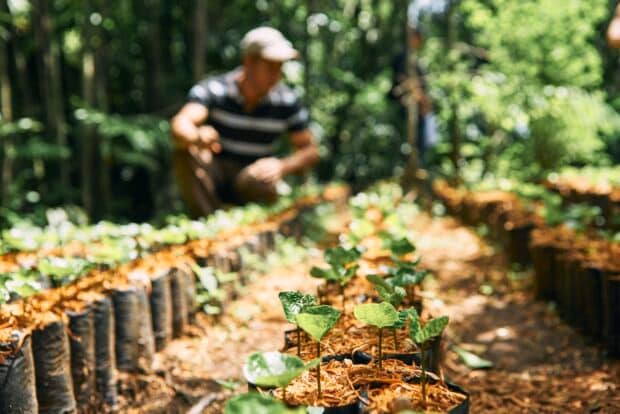[[{“value”:”
The United States-based nonprofit World Coffee Research last month released a groundbreaking technical report on the coffee seed sector in Latin America.
The report shines a light on current activities in the seed sector in five key coffee-producing countries (El Salvador, Guatemala, Honduras, Nicaragua and Peru), providing striking results regarding genetic nonconformity at current nursery operations.
“The lack of a formal coffee seed sector is one of the most important — and yet largely invisible— problems faced by the global coffee industry,” WCR stated in an announcement.
According to the report, which involved data from 52 seed plantations, 36% of participating seed lots showed “very high rates of genetic noncompliance,” meaning 50% or fewer tested coffee plants were being correctly identified, according to genetic testing. The report attributes such results to a lack of good agricultural practices (or GAPs) as well as structural challenges such as lack of certification tools and profitabililty/investments.
The work was funded by the United States Department of Agriculture (USDA) through the Maximizing Opportunities in Cacao and Coffee in the Americas (MOCCA) program, with Technoserve acting as an implementation partner. Lavazza company Lavazza Professional provided additional support.
The project was designed to assess current conditions at current seed nurseries while outlining pathways for building a more robust seed sector infrastructure throughout Latin America. The overarching idea is that higher-quality and genetically conforming seeds can benefit coffee farmers, producer groups and other coffee industry actors through improved plant material and quality assurance.
“Previously, we had a sense that genetic contamination was happening in Arabica plantations in the region,” WCR Nursery Development Program Manager Emilia Umaña said in an announcement from the group. “The data found through this work create a window to look at this situation in a more proactive manner — we can better understand the consequences of not implementing GAPs that are specific for coffee seed production and, even more importantly, we can find and promote the best seed sources available.”
Comments? Questions? News to share? Contact DCN’s editors here.
Related Posts
Nick Brown Nick Brown is the editor of Daily Coffee News by Roast Magazine.
“}]]


